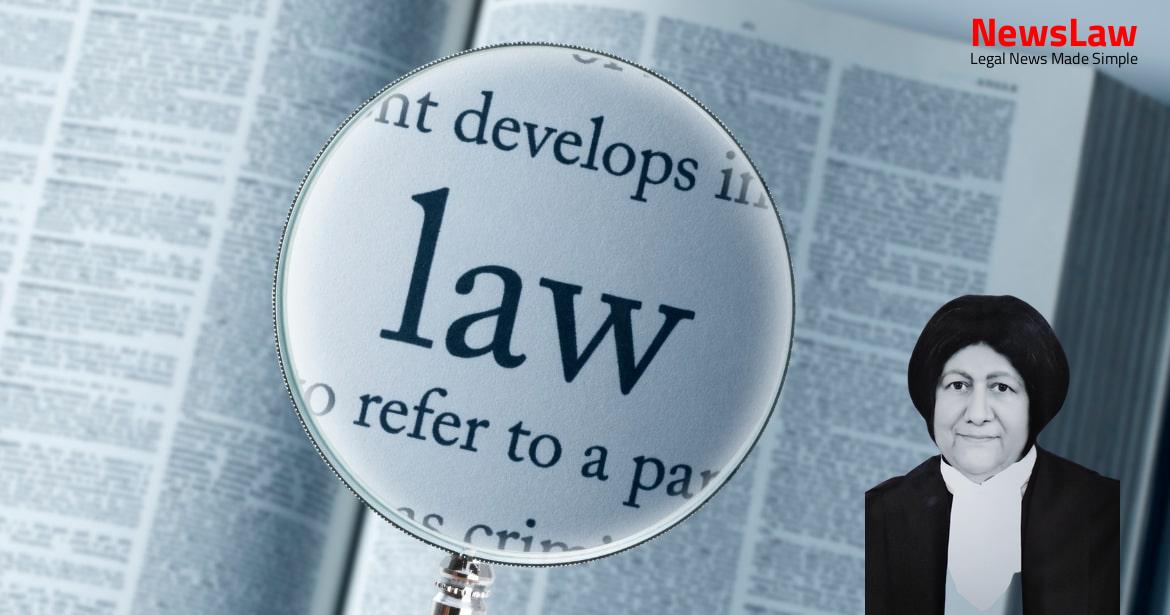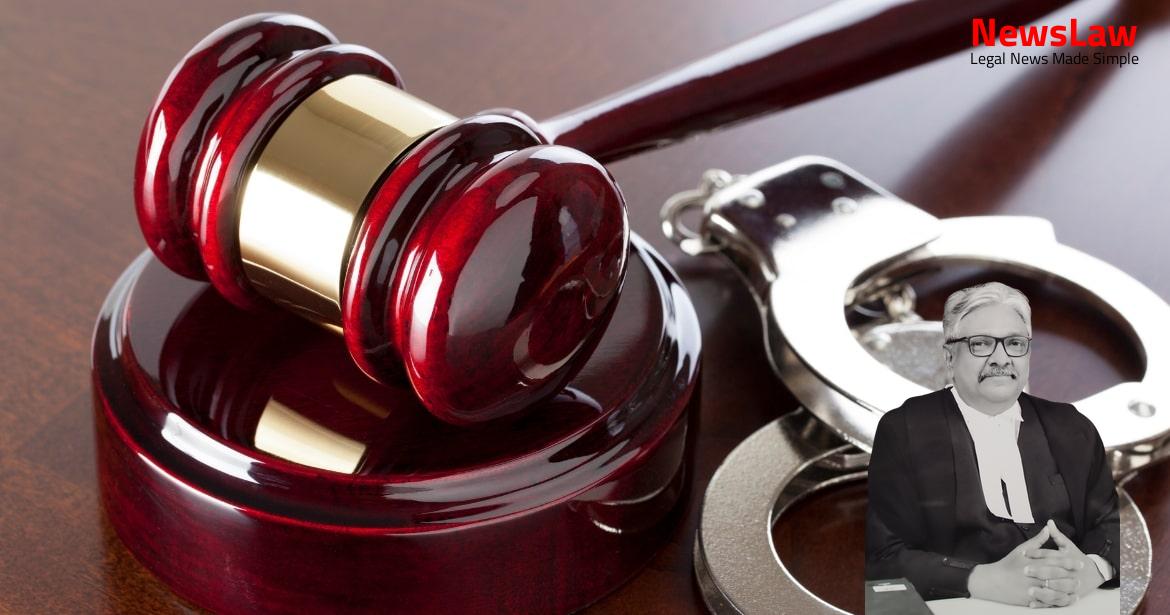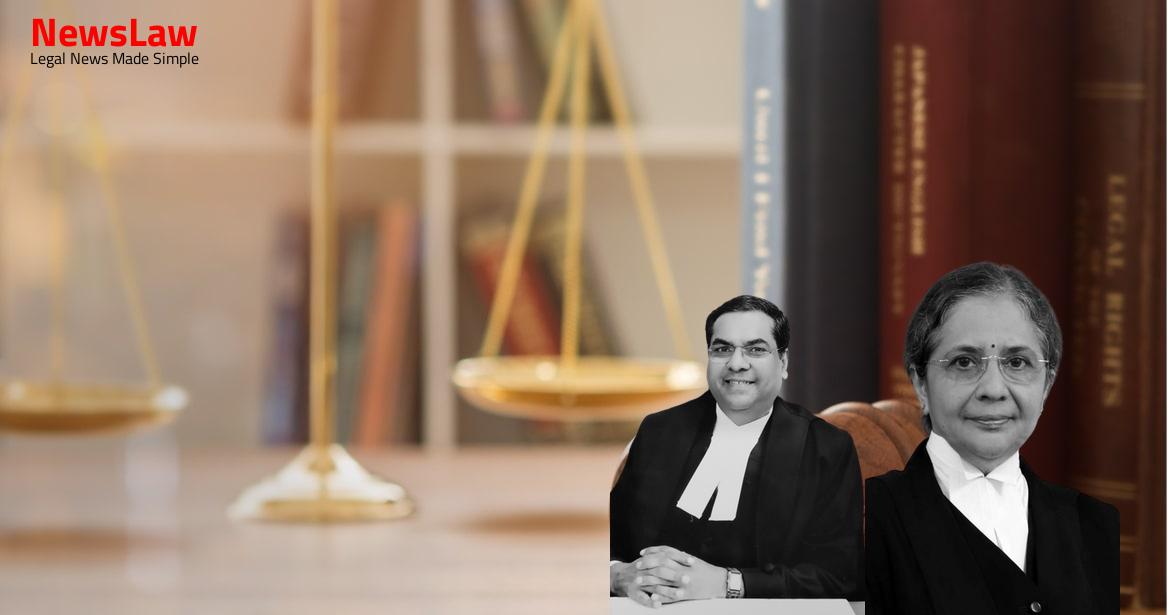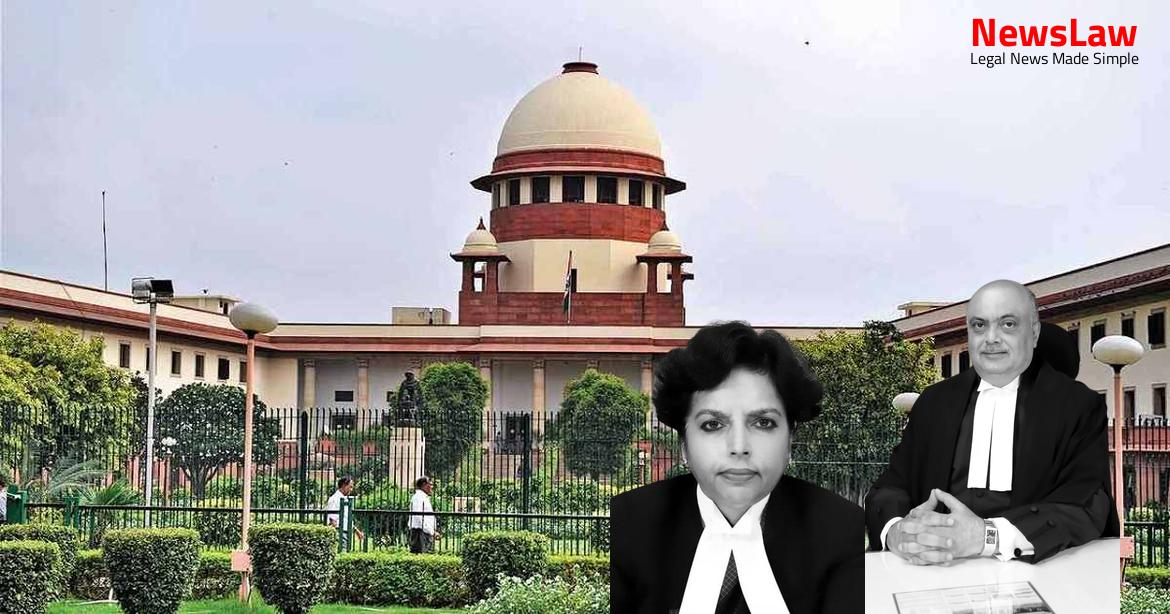In a recent ruling by the Supreme Court of India, a crucial decision was made in the case involving the confirmation of probation services. The judgment highlighted the matter of deemed confirmation in probation, ultimately leading to the first respondent’s victory. This landmark verdict sets a significant precedent for future legal proceedings in similar cases.
Facts
- The first respondent was appointed on probation as a PGT (English General) in an aided school and linguistic minority institution.
- Probation period extended multiple times due to unsatisfactory services.
- Discharged from service by Managing Committee of society.
- Filed an appeal before Delhi School Tribunal seeking reinstatement and back wages.
- High Court overturned Single Judge’s decision in Letters Patent Appeal.
- The High Court held that there is a deemed confirmation of the services of a probationer who is continued in service beyond the maximum period of probation.
- Rule 105 of the 1973 Rules fixes a maximum probationary period of two years.
- The appointment letter dated 18 June 2008 stipulated a probation period of one year.
- The Division Bench accepted the deemed confirmation of the services of the first respondent who was a probationer in the school of the appellants.
- The Tribunal allowed the appeal and directed the appellants to reinstate the first respondent with consequential benefits.
- The Delhi High Court held that no maximum period of probation was specified in the appointment letter or the 1973 Rules.
- The continuation of services beyond the probation period was not deemed as confirmation without an order from the appointing authority.
- The Division Bench of the High Court restored the order of the Tribunal based on the satisfactory conduct of the first respondent.
- Confirmation of service is contingent upon the satisfactory work and conduct of the probationer.
Arguments
- Mr Yashobant Das, Senior Counsel for the appellants, argued that the Division Bench of the High Court did not follow the Veena Sharma judgment of a coordinate Bench
- Mr Yashobant Das contended that Rule 105 of the 1973 Rules does not imply a deemed confirmation of a probationer’s services
- Justice Dipak Misra disagreed with the argument stating that Rule 105 does not specify a fixed probation period and the employee’s work and conduct must be satisfactory for confirmation
- The proviso to Rule 105 exempts minority institutions from requiring the Director’s approval for extending the probation period by another year.
- Rule 105 sets a maximum probation period of two years, with continued service beyond that period implying confirmation of service.
- No confirmation order is needed under Rule 105, as service is deemed confirmed after the prescribed probation period.
- The first respondent’s appointment letter indicated a one-year probation period.
- The High Court, following the precedent in Dharam Singh case, ruled that the first respondent was confirmed in service after the probationary period ended.
- Dharam Singh case interpretation of Rule 6 lacked provisions for probation extension or confirmation order requirement.
Also Read: CRPF Act: Validity of Rule 27 for Compulsory Retirement – Case of Head Constable vs. CRPF
Analysis
- Rule 105(1) allows termination without notice during probation if services are unsatisfactory.
- Confirmation of probationer upon satisfactory service at the end of probation period.
- The first proviso exempts minority institutions from seeking Director’s approval for extending probation by one year.
- The proviso does not limit the extension of probation to one year only.
- Extension of probation beyond one year is permissible.
- A teacher’s long service should not be disregarded, especially if it affects future employment.
- The management must comply with the law, and sanctions may be imposed under Article 142.
- The interpretation of ‘by another year’ in Rule 105(1) indicates a maximum probation period of two years.
- The interpretation of a proviso in light of the bar on the evidentiary value of statements recorded in writing is based on the principle laid down by the Court.
- The proviso exempts the appointing authority of minority institutions from seeking prior approval when extending the probationary period within two years.
- The satisfaction of the appointing authority is a condition precedent to the issuance of an order of confirmation for a probationer.
- Consistent application of principles by various benches of the Court in cases involving probation and confirmation of service.
- The continuation of services beyond the maximum probation period only results in deemed confirmation in the absence of any specific conditions.
- The proviso cannot be read in isolation from the principal provision for a harmonious construction of the law.
- Rule 105 of the 1973 Rules limits the probationary period to two years, including any extensions.
- The High Court’s interpretation that continuation of service beyond probation leads to deemed confirmation is incorrect.
- The provisions of Rule 105 were amended over time, including the requirement of prior approval from the Director for extending probation.
- The appointing authority can extend probation by another year with Director’s approval, except for minority institutions.
- No deemed confirmation of service exists without an order of confirmation.
- The purpose of probation is to assess the employee’s performance and suitability for continued service.
- The amendments in Rule 105 and related rules were aimed at balancing the rights of probationers and the appointing authority.
- The High Court overlooked the correct provisions of Rule 105 in this case.
- The appointing authority’s discretion in extending probation is limited by the requirement of Director’s prior approval.
- The limit on probation extension safeguards against indefinite probation periods, maintaining the integrity of the probation system.
- The High Court did not consider the amending history of Rule 105 of the 1973 Rules.
- The High Court relied on an incorrect provision of law in this case and previous cases.
- The maximum probation period under Rule 105 of the 1973 Rules is affirmed to be two years.
- Previous litigation under Rule 105 of the 1973 Rules, which has reached finality, shall not be reopened.
Also Read: DAMEPL vs. DMRC: Curative Petition and Arbitral Award Restoration
Decision
- The appellants are directed to pay INR 5,00,000 to the first respondent within four weeks of receiving the order.
- If the payment is not made within the stipulated time, the amount will accrue an interest of 9% per annum until realization.
- A copy of the judgment will be sent to the Chief Librarian of the Supreme Court of India, the Registrar General of the Delhi High Court, and the Department of Education, National Capital Territory of Delhi for recording Rule 105 of the 1973 Rules.
- Any pending applications are considered disposed of.
- No costs are awarded.
- The Delhi High Court’s decision confirming the services of the first respondent is set aside.
- The appeal is partly allowed based on the provided terms.
Case Title: DURGABAI DESHMUKH MEMORIAL SENIOR SEC. SCHOOL Vs. J.A.J. VASU SENA
Case Number: C.A. No.-005926-005926 / 2019



